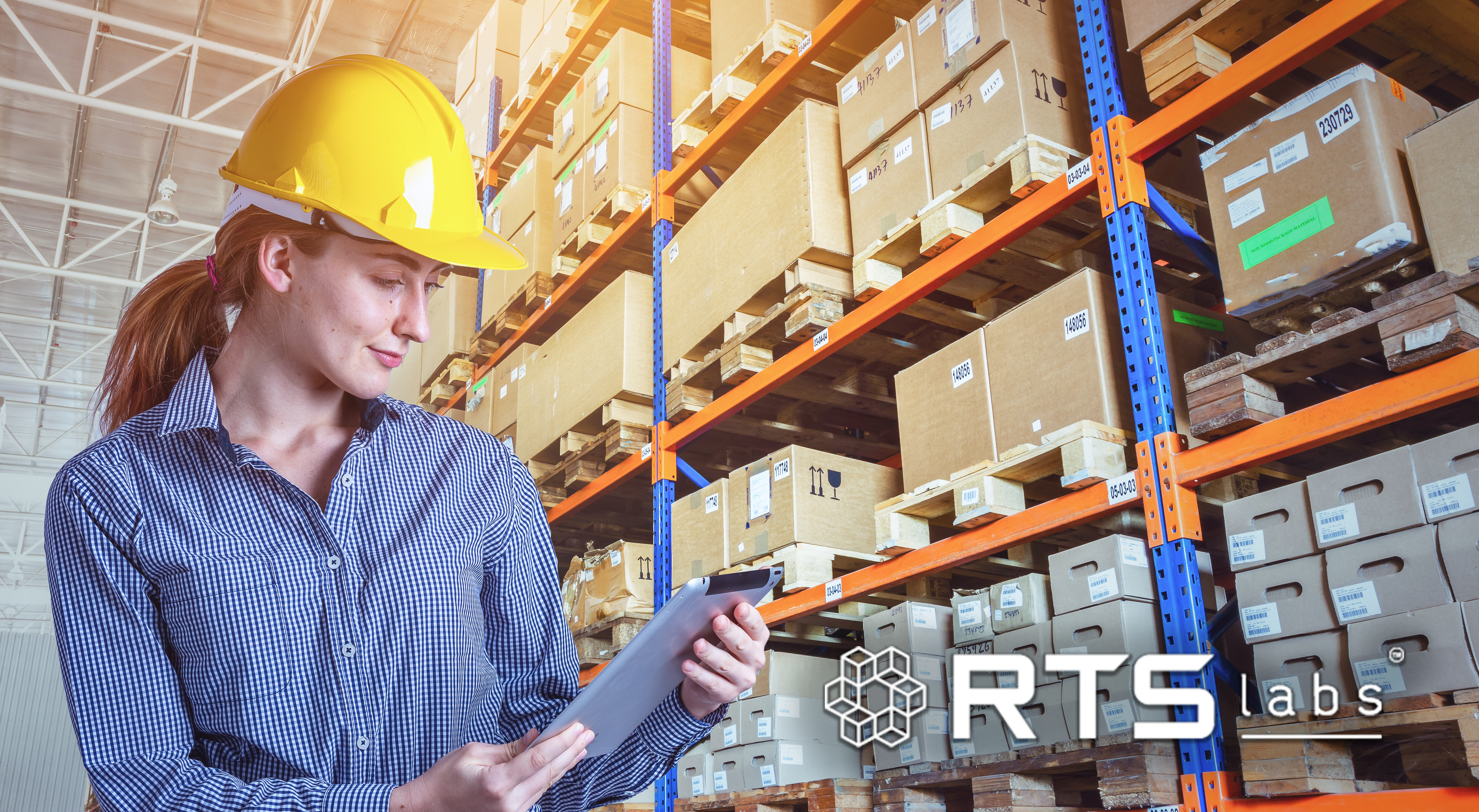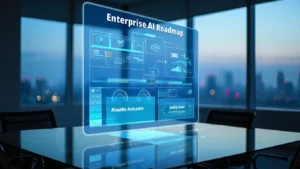- Discover how AI-driven supply chain optimization can help companies streamline operations, reduce costs, and improve efficiency through advanced technologies like demand forecasting, intelligent warehouse management, and predictive analytics
- Learn about the key applications of AI in supply chain management, including real-world examples of companies that have successfully implemented AI solutions and achieved significant business benefits
- Explore best practices and considerations for implementing AI in supply chain optimization, as well as emerging trends and future possibilities that will shape the future of supply chain management
Today businesses are navigating an increasingly complex and dynamic global market, the imperative to optimize operations, minimize expenses, and boost productivity has never been more pressing. One area that has shown immense potential for optimization is the supply chain. With the advent of artificial intelligence (AI) technologies, businesses now have access to powerful tools that can revolutionize the way they manage their supply chains. This article explores how AI-driven supply chain optimization can lead to increased efficiency and reduced costs, ultimately driving business success.
The Need for AI in Supply Chain Management
Challenges in Traditional Supply Chain Operations
Traditional supply chain management often relies on manual processes, siloed data, and reactive decision-making. These factors can lead to several challenges, including:
- Lack of visibility: Limited real-time data and insights into supply chain operations can hinder a company’s ability to make informed decisions and respond quickly to disruptions.
- Inefficiencies and waste: Manual processes and lack of optimization can cause excess inventory, inefficient resource allocation, and increased operational costs.
- Slow response times: Without predictive capabilities and automated decision-making, companies may struggle to adapt to changing market conditions and customer demands.
- Human error: Relying on manual processes can lead to errors in data entry, forecasting, and decision-making, which can have a ripple effect throughout the supply chain.
By leveraging AI technologies, companies can address these challenges and unlock new opportunities for optimization and growth.
AI Applications in Supply Chain Optimization
1. Demand Forecasting and Planning
One of AI’s most significant applications in supply chain management is demand forecasting. AI algorithms can analyze vast amounts of historical data, market trends, and external factors to predict future demand with high accuracy. This enables companies to optimize their inventory levels, reduce stockouts, and minimize excess inventory.
For example, a leading retailer implemented an AI-powered demand forecasting system that analyzed data from multiple sources, including sales history, weather patterns, and social media trends. The system was able to predict demand with 95% accuracy, resulting in a 30% reduction in inventory costs and a 10% increase in sales.
2. Intelligent Warehouse Management
AI can also revolutionize warehouse operations by enabling intelligent automation and optimization. Some key applications include:
- Robotics and autonomous vehicles: AI-powered robots and autonomous vehicles can streamline picking, packing, and shipping processes, reducing labor costs and increasing efficiency.
- Inventory optimization: AI algorithms can analyze inventory data to identify optimal stock levels, reduce overselling, and minimize dead stock.
- Predictive maintenance: AI can monitor equipment performance and predict maintenance needs, reducing downtime and extending asset life.
A global e-commerce company implemented an AI-driven warehouse management system that used robotics and machine learning to optimize order fulfillment. The system increased picking speed by 200%, reduced errors by 50%, and improved overall efficiency by 30%.
3. Intelligent Transportation and Logistics
AI can optimize transportation and logistics processes by enabling real-time route optimization, predictive maintenance, and automated dispatching. Some key applications include:
- Route optimization: AI algorithms can analyze traffic patterns, weather and other factors to determine the most efficient routes for delivery vehicles.
- Predictive maintenance: AI can monitor vehicle performance and predict maintenance needs, reducing breakdowns and increasing fleet availability.
- Automated dispatching: AI can automatically assign orders to the most appropriate vehicles and drivers based on factors such as location, capacity, and delivery time.
A leading logistics company implemented an AI-powered transportation management system that optimized route planning and vehicle utilization. The system reduced fuel consumption by 15%, increased on-time deliveries by 20%, and improved overall efficiency by 25%.
4. Supplier Risk Management
AI can help companies identify and mitigate supplier risks by analyzing vast amounts of data from multiple sources, such as financial reports, news articles, and social media. Some key applications include:
- Supplier risk assessment: AI algorithms can analyze supplier data to identify potential risks, such as financial instability, compliance issues, or supply disruptions.
- Predictive risk alerts: AI can continuously monitor supplier data and provide early warning alerts for potential risks, enabling companies to take proactive measures.
- Supplier performance evaluation: AI can analyze supplier performance data to identify top-performing suppliers and areas for improvement.
A global manufacturing company implemented an AI-powered supplier risk management system that analyzed data from over 10,000 suppliers. The system identified several high-risk suppliers, enabling the company to take proactive measures and avoid potential supply chain disruptions.
Implementing AI-Driven Supply Chain Optimization
Best Practices and Considerations
While AI offers immense potential for supply chain optimization, implementing these technologies requires careful planning and execution. Some best practices and considerations include:
- Define clear objectives: Identify specific areas of the supply chain where AI can drive the most significant impact and align these initiatives with overall business goals.
- Ensure data quality and integration: AI algorithms rely on high-quality, integrated data from multiple sources. Invest in data governance and integration processes to ensure data accuracy and reliability.
- Foster collaboration and skills development: Implementing AI in the supply chain requires close collaboration between supply chain, IT, and data science teams. Invest in skills development and training to build the necessary capabilities.
- Start small and scale gradually: Begin with pilot projects in specific areas of the supply chain and gradually scale successful initiatives across the organization.
- Monitor and refine continuously: Continuously monitor the performance of AI systems and refine algorithms and processes based on feedback and changing business needs.
The Future of AI-Driven Supply Chain Optimization
As AI technologies continue to advance, the potential for supply chain optimization will only grow. Some emerging trends and future possibilities include:
- Cognitive automation: The integration of AI with robotic process automation (RPA) and natural language processing (NLP) will enable smarter, autonomous supply chain processes.
- Blockchain integration: Combining AI with blockchain technology can enable more secure, transparent, and efficient supply chain transactions and data sharing.
- Prescriptive analytics: AI algorithms will move beyond predictive analytics to provide prescriptive recommendations and automated decision-making for supply chain optimization.
- Augmented reality and virtual reality: AI-powered AR and VR technologies will enable immersive training, remote collaboration, and enhanced decision-making in supply chain operations.
As these technologies mature, companies that embrace AI-driven supply chain optimization will be well-positioned to drive efficiency, reduce costs, and gain a competitive edge in the market.
AI for Supply Chain Excellence
AI-driven supply chain optimization represents a significant opportunity for companies to streamline operations, reduce costs, and improve overall efficiency. By leveraging AI technologies such as demand forecasting, intelligent warehouse management, and predictive analytics, businesses can overcome the limitations of traditional supply chain processes and unlock new levels of performance.
However, successful implementation of AI in the supply chain requires careful planning, collaboration, and continuous refinement. By following best practices and staying attuned to emerging trends, companies can harness the full potential of AI to drive supply chain excellence and business success.
As the famous quote by Jack Welch goes, “If the rate of change on the outside exceeds the rate of change on the inside, the end is near.” In today’s rapidly evolving business landscape, embracing AI-driven supply chain optimization is not just a choice, but a necessity for companies seeking to adapt, thrive, and lead in the digital age







